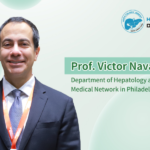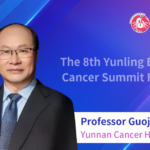
From July 5th to 7th, the highly anticipated 2024 Annual Progress Seminar in Clinical Oncology in China (BOC) and Best of ASCO 2024 China were grandly held in Guangzhou. This conference focused on the "2023 Annual Progress in Clinical Oncology in China" selected by CSCO, aiming to deeply analyze the latest research achievements in the field of oncology in China. Based on the actual situation of cancer incidence in the country, the conference specially invited authoritative experts in the field of oncology and carefully selected outstanding papers from the 2024 ASCO conference in various related fields for comprehensive and in-depth interpretation. During the conference, "Oncology Frontier - Hematology Frontier" had the honor to interview Professor Meng Wu from Peking University Cancer Hospital, who shared profound insights and unique academic perspectives on major research in the field of lymphoma.SYMPATICO Study :Explores Ibrutinib Combined with Venetoclax in TP53-Mutant MCL
Oncology Frontier – Hematology Frontier: At this conference, you shared three significant studies in the field of lymphoma presented at ASCO this year. First, based on the results of the SYMPATICO study, how do you evaluate the efficacy and safety of ibrutinib combined with venetoclax in mantle cell lymphoma (MCL) patients with TP53 mutations? What potential impact does this finding have on the current treatment landscape and patient prognosis?
Professor Meng Wu: In the treatment strategy for mantle cell lymphoma (MCL), both the Bruton tyrosine kinase inhibitor (BTKi) ibrutinib and the BCL-2 inhibitor (BCL-2i) venetoclax have shown certain therapeutic effects when used alone. The SYMPATICO study evaluated the actual efficacy of combining these two drugs in relapsed/refractory (R/R) MCL patients, which holds significant clinical practice implications. At this year’s ASCO 2024 conference, we specifically reported the study data for the patient group with TP53 mutations. This specific group was chosen because TP53 mutations are considered a key factor for poor prognosis in mantle cell lymphoma, and these patients typically benefit less from traditional chemotherapy, immunotherapy, and BTKi monotherapy. The primary objective of this study was to explore the therapeutic potential of combining ibrutinib and venetoclax in high-risk MCL patients. The results showed that the combination therapy brought significant survival benefits to high-risk patients, demonstrating positive outcomes in the continuous pursuit of precision treatment strategies in the field of lymphoma.
EPCORE NHL-1 Study: Three Measures to Improve R/R FL Treatment Through Dose Optimization, Improved Pretreatment, and Outpatient Care
Oncology Frontier – Hematology Frontier: The EPCORE NHL-1 study’s results from the first cycle (C1) optimization cohort (OPT) showed that epcoritamab has significant safety and efficacy in treating R/R FL patients in an outpatient setting. Could you detail these findings and how they might change the treatment landscape for follicular lymphoma?
Professor Meng Wu: The EPCORE NHL-1 study is highly innovative, with its core aim to reduce the frequency of adverse reactions caused by using bispecific antibodies, thereby reducing unnecessary hospitalizations and ultimately significantly improving patients’ quality of life. Given that follicular lymphoma (FL) is a type of indolent lymphoma with a large patient population and high recurrence and treatment difficulty, finding more effective treatment methods to improve the prognosis of these patients is particularly urgent. Additionally, FL patients typically have a long lifespan and are in long-term anti-tumor treatment, so researchers seek not only superior treatment outcomes but also aim to ensure the patients’ quality of life while ensuring efficacy.
To achieve this goal, the study made significant adjustments in three aspects: First, an intermediate dose was added during the dose-escalation phase to make dose adjustment smoother, effectively reducing the occurrence of adverse reactions; second, the pretreatment regimen was optimized by replacing prednisone with dexamethasone to further reduce the severity of adverse reactions; finally, the study attempted outpatient administration, monitoring, and treatment for the first time, aiming to provide more practical guidance for clinical practice and alleviate the psychological and medical burden of patients due to long-term medication.
The study results showed that the optimized cohort design achieved significant outcomes, successfully meeting the primary study endpoints. Compared with previous key studies, the optimized cohort study achieved a significant reduction in the incidence and severity of cytokine release syndrome (CRS) and immune effector cell-associated neurotoxicity syndrome (ICANS). Moreover, the study successfully achieved the goal of enabling most patients to receive medication, monitoring, and treatment through outpatient channels. In summary, the EPCORE NHL-1 study demonstrated significant importance in comprehensively considering the efficacy, safety, and patient experience throughout the treatment process, providing valuable references and guidance for clinical practice.
References
- 2024 ASCO. Abstract #7007: Efficacy and safety of ibrutinib plus venetoclax in patients with mantle cell lymphoma (MCL) and TP53 mutations in the SYMPATICO study.
- 2024 ASCO. Abstract #7015: EPCORE NHL 1 follicular lymphoma (FL) cycle (C) 1 optimization (OPT) cohort: Expanding the clinical utility of epcoritamab in relapsed or refractory (R/R) FL.
Professor Meng Wu
- Associate Chief Physician, MD, Department of Lymphoma, Peking University Cancer Hospital
- Member of the Lymphatic Hematologic Oncology Professional Committee, Beijing Anti-Cancer Association
- Standing Committee Member of the Lymphatic Hematopoietic Branch, Beijing Tumor Pathology Precision Diagnosis Research Association
- Outstanding Young Physician and Clinical Scientist, Peking University
- Specializes in: Diagnosis and treatment of lymphoma, autologous hematopoietic stem cell transplantation, and cellular immunotherapy
- Responsible for and participates in multiple Phase I-II clinical studies domestically and internationally
- Engaged in lymphoma-related translational research, serving as the principal investigator for several National Natural Science Foundation projects.


